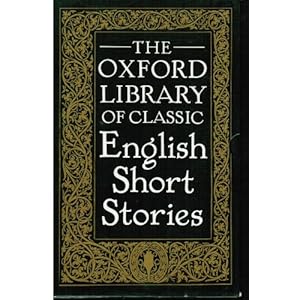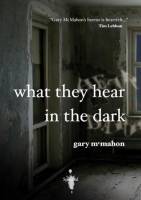This week, Jackie from Farm Lane Books has blogged about why she loves debut authors, and now her thoughts on the Waterstone’s 11. This is not a football team, but their selection of eleven debut novels, all to be published in the UK during 2011. A sample chapter of each book is on offer available at the Waterstone’s 11 website; Jackie has read all those and posted her reaction.
Well, I also like debut novels, so I thought I’d do the same as Jackie and see how our opinions compare. Many of the selected books were already on my radar, so naturally I am interested to find out what they’re like; and I’m intrigued by the ones that are completely new to me.
So, following the same order as Jackie, here we go:
David Bezmosgis, The Free World
 1978: a family of Jewish refugees are travelling from Latvia to a new life in Chicago; this opening section follows them from Vienna to Rome. I liked the prose at the beginning, but found the extract as a whole difficult to grasp — partly, I think, because I’m unfamiliar with the subject matter. I gain the impression of a talented writer and a significant book; but, like Jackie, I’ll be waiting to see what others think before I decide whether to read on.
1978: a family of Jewish refugees are travelling from Latvia to a new life in Chicago; this opening section follows them from Vienna to Rome. I liked the prose at the beginning, but found the extract as a whole difficult to grasp — partly, I think, because I’m unfamiliar with the subject matter. I gain the impression of a talented writer and a significant book; but, like Jackie, I’ll be waiting to see what others think before I decide whether to read on.
Anticipation rating: ***½
Sophie Hardach, The Registrar’s Manual for Detecting Forced Marriages

A Kurdish refugee enters Germany, and, years later, a German registrar (now working in Paris) who once knew him questions of the legitimacy of a forthcoming wedding. I love the writing in this extract — the opening scene is especially vivid — so this novel is definitely going on my list of books to investigate.
Anticipation rating: ****
Kevin Barry, City of Bohane

Mainstream-published books that could be read as speculative fiction will always pique my interest, and this near-future tale of crime bosses in an Irish city is no exception. Jackie didn’t much care for this extract; like her, I found the dialect quite heavy going, but I am intrigued and suspect I will return to the book.
Anticipation rating: ***½
Amanda Hodgkinson, 22 Britannia Road

A woman travels with her son from Poland to England, where she will be reunited after six long years with her husband, who had been serving in the Polish Corps and now has a house for the family in Ipswich — but the years apart have changed them. I’m ambivalent about this book — I think it’s well written, but at the same time, it doesn’t grab me. I’ll put it down as a ‘maybe’.
Anticipation rating: ***½
Shehan Karunatilaka, Chinaman

A dying sports journalist resolves to find a cricketer whom disappeared years ago — a cricketer he considers great, but who is otherwise largely unknown. Jackie doesn’t like cricket, and couldn’t drum up any enthusiasm for this extract. Fair enough. I don’t like cricket, either, but I thought this was great; the prose is vigorous and quirky, and I want to read more — I have a real sense that I could fall in love with this book.
Anticipation rating: *****
Stephen Kelman, Pigeon English

Narrated by a Ghanaian boy now living on a London estate, this was Jackie’s favourite extract of the eleven. Myself, I think Kelman creates the boy’s voice very well, and I can already see some interesting contrasts being established –yet I don’t have the instinctual feeling that the book is for me. I’ll be seeking out other opinions, I think.
Anticipation rating: ****
Sam Leith, The Coincidence Engine

The most clearly speculative title in the selection, with its “Directorate of the Extremely Improbable” and a hurricane that spontaneously builds an aeroplane from junk, this most certainly goes on my list. It could go either way — depending, I suspect, on how tongue-in-cheek it tries to be — but there’s enough interesting strangeness in this opening extract to make me want to find out.
Anticipation rating: ****½
Téa Obreht, The Tiger’s Wife

In 1941, German bombers ruin a city in the Balkans, and a tiger escapes from the zoo, eventually making his way to the village where the narrator’s grandfather (then a boy) lives. For that boy, it is an occurence as wondrous as if Shere Khan himself had come to life. The synopsis of the book (which points to intriguing developments beyond the scope of this opening extract) alone would persuade me to read on; now I’ve read the sample, the prose does likewise. Put both factors together, and…
Anticipation rating: ****½
Johanna Skibsrud, The Sentimentalists

At the start of this extract, the narrator moves her ailing father to another town, to live with the father of his friend who died when the two were serving in Vietnam. I have less of a sense from reading the sample of what the novel as a whole might be like than I’ve had with any of the previous titles on the list; though I’m broadly in agreement with Jackie — the writing is nicely descriptive, but I’m not really inspired to read further.
Anticipation rating: ***
Mirza Waheed, The Collaborator

Kashmir, 1993: a teenage boy is made to collaborate with the Indian army; in the opening extract, he is sent to collect weapons and ID cards from the fallen bodies. There’s an effective contrast drawn between the boy’s valley before and after the army arrived, and the prose has considerable momentum. I don’t think it’s a book for my must-read list, but I can imagine returning to it in time.
Anticipation rating: ***½
Sarah Winman, When God Was a Rabbit

It’s quite difficult to give a flavour of this extract without going into too much or too little detail; to say it focuses on a girl growing up in the 1970s is too bald a description, but so much happens and is hinted at that it’s hard to summarise. But that doesn’t matter, because the prose is brilliant. Jackie wonders if the novel will be too busy for its own good, and that’s a possibility; but I’m optimistic, and I know I’ll be reading this book on its publication.
Anticipation rating: *****
===
So, out of eleven books, there are four I will definitely be reading (Chinaman, When God Was a Rabbit, The Coincidence Engine, and The Tiger’s Wife); several more I may read at some point; and, though not all the extracts are to my taste (nor would I expect them to be), there’s nothing that makes me go, ‘what were they thinking?’ I think this is a list which genuinely has something for everyone. Good work.
 The
The  Linda Grant’s We Had It So Good is the first title selected for the
Linda Grant’s We Had It So Good is the first title selected for the 
 I suspect that many people who studied GCSE English in the north of England (and, for all I know, further afield) had Barry Hines’s 1968 novel A Kestrel for a Knave (filmed the year after as Kes by Ken Loach) as one of their set texts. This is the story of Billy Casper, a young lad living in a South Yorkshire mining town. His father has left home, his older brother is a bully, and his mother has no time for Billy, being more occupied with a string of affairs. School is no better: Billy can barely read or write, is often picked on by the other boys, and the teachers (with the exception of one) treat him as a no-hoper. Although he’s about to leave school, Billy has no idea what he’ll do next. But there is one good thing in the boy’s life: Kes, the kestrel Billy has trained himself and is highly adept at handling.
I suspect that many people who studied GCSE English in the north of England (and, for all I know, further afield) had Barry Hines’s 1968 novel A Kestrel for a Knave (filmed the year after as Kes by Ken Loach) as one of their set texts. This is the story of Billy Casper, a young lad living in a South Yorkshire mining town. His father has left home, his older brother is a bully, and his mother has no time for Billy, being more occupied with a string of affairs. School is no better: Billy can barely read or write, is often picked on by the other boys, and the teachers (with the exception of one) treat him as a no-hoper. Although he’s about to leave school, Billy has no idea what he’ll do next. But there is one good thing in the boy’s life: Kes, the kestrel Billy has trained himself and is highly adept at handling. At the tail end of last year, I read
At the tail end of last year, I read  Kim, Coles’s narrator, looks back on his Eton days in the early 1980s. At the age of seventeen, Kim fell for India James, his beautiful young piano teacher — and, somewhat to his surprise, found his affection reciprocated. Of course, these are difficult circumstances in which to conduct a relationship anyway, but Kim’s eagerness to think the worst does nothing to help. The Well-Tempered Clavier is a neat portrait of a teenage crush as a whirlwind of uncertainty and possibility, a rush of love (or lust, or both) mixed up with doubt. I think the level of foreshadowing in the narration dilutes the novel’s impact somewhat, but, in general, this is a worthwhile debut.
Kim, Coles’s narrator, looks back on his Eton days in the early 1980s. At the age of seventeen, Kim fell for India James, his beautiful young piano teacher — and, somewhat to his surprise, found his affection reciprocated. Of course, these are difficult circumstances in which to conduct a relationship anyway, but Kim’s eagerness to think the worst does nothing to help. The Well-Tempered Clavier is a neat portrait of a teenage crush as a whirlwind of uncertainty and possibility, a rush of love (or lust, or both) mixed up with doubt. I think the level of foreshadowing in the narration dilutes the novel’s impact somewhat, but, in general, this is a worthwhile debut. Lelic’s debut,
Lelic’s debut,  I was looking forward to reading this, as it sounded just the sort of quirky book that I enjoy. And parts of it were just that — but the whole didn’t quite hang together.
I was looking forward to reading this, as it sounded just the sort of quirky book that I enjoy. And parts of it were just that — but the whole didn’t quite hang together.
 The first of our new
The first of our new  Birds appear again, though in a rather different context, in Nightjar’s other new chapbook.
Birds appear again, though in a rather different context, in Nightjar’s other new chapbook. 
Recent Comments